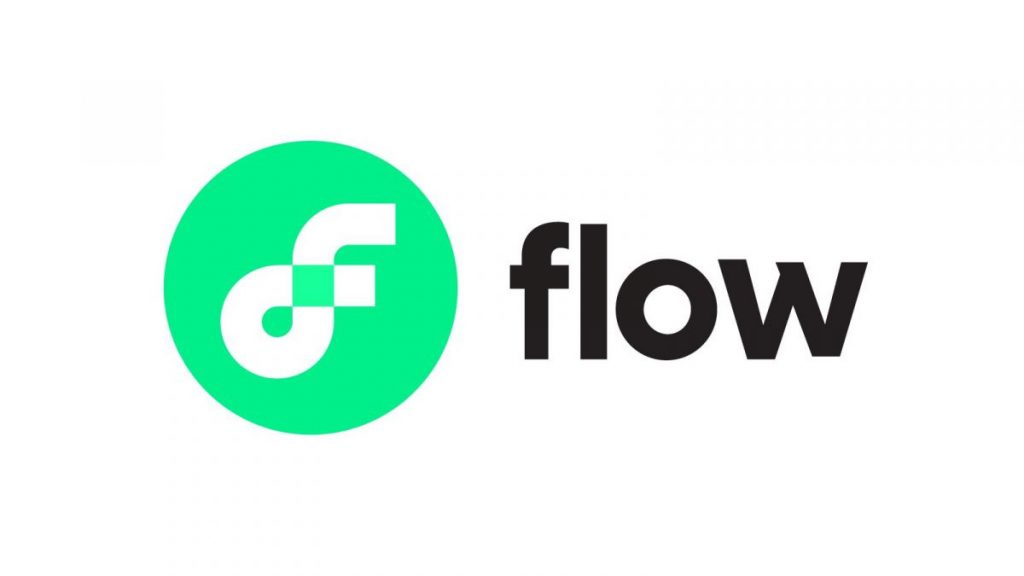Flow Cryptocurrency (FLOW)

A gaming blockchain platform that has expanded since its inception. The flow blockchain enables quick, low-cost transactions and smart contracts. It allows for the creation of blockchain apps such as NBA Top Shot, a non-fungible token (NFT) providing platform.
Flow’s native token is FLOW. Flow’s mainnet launched on September 15, 2020. The flow was founded by the team behind Dapper Labs, the company behind CryptoKitties and NBA Top Shot.
Flow Cryptocurrency (FLOW) is a blockchain platform that was initially created for game purposes but has since grown. Flow enables blockchain applications such as NBA Top Shot, a non-fungible token (NFT) providing. Flow’s mainnet launched on September 15, 2020. The Flow team is the same team behind Dapper Labs, the company that created CryptoKitties and NBA Top Shot.
Flow’s native token is FLOW. Flow aims to be the foundation for a new decentralized economy where people can easily create, buy, and sell digital goods and services. Flow’s mainnet launch on September 15, 2020, brought with it a number of key features and upgrades including:
- Support for smart contracts
- A new virtual machine
- Improved transaction speed and scalability

What is Flow?
Flow is a blockchain network that allows for quick and cheap transactions. The flow blockchain is a rival to Ethereum, another blockchain platform that includes a native currency as well as an ecosystem of blockchain-based initiatives.
In conjunction with Dapper Labs’ NBA Top Shot, a blockchain-based digital collectibles marketplace that specializes in basketball cards, the flow blockchain was introduced. Flow allows for the buying, selling, and transferring of these digital collectibles. Flow’s mainnet went live on September 15, 2020.
The coin’s supply is not limited, but the inflation rate of FLOW—the yearly rate at which new tokens are generated as rewards leading to an increase in supply—is currently limited to 3.75%. The Flow protocol doesn’t currently have a way to mint new tokens so the current circulating supply is all that will ever exist.
Special Features of Flow
The flow blockchain enables quick, low-cost transactions and smart contracts. Flow was built from the ground up to be scalable and easily extensible. Flow’s unique architecture enables a high degree of flexibility, which allows developers to create a wide variety of applications on the Flow network.
One of Flow’s key features is its support for non-fungible tokens (NFTs). NFTs are digital assets that are unique and cannot be replaced. Flow’s support for NFTs enables the creation of applications such as NBA Top Shot, a blockchain-based marketplace for basketball cards.
Flow is also notable for its partnership with major companies such as Microsoft, Google, and Ubisoft. These partnerships have led to Flow being integrated into platforms such as Google Cloud and Azure.
How To Mine FLOW
It is not currently possible to mine Flow as the network is not yet live. When the Flow network launches, it will use a proof-of-stake (PoS) consensus mechanism. This means that users will be able to stake their FLOW tokens in order to earn rewards.
The following four types of nodes are used by flow to execute cryptocurrency transactions and add new blockchain blocks:
- Coinbase nodes offer Flow’s token to buyers in exchange for other cryptocurrencies.
- Observation nodes help the network reach consensus by sharing block data with other nodes.
- Execution nodes run smart contracts and add new blocks to the Flow blockchain.
- Compilation nodes compile smart contract code into a format that can be executed by Flow’s virtual machine.
To become a Flow validator, users must have at least 10,000 FLOW tokens. Once Flow launches, users will be able to stake their FLOW tokens using the Flow Wallet, an online wallet that supports Flow transactions.
How does Flow work?
Flow is a blockchain network that enables quick and cheap transactions. Flow’s native token is FLOW. Flow aims to be the foundation for a new decentralized economy where people can easily create, buy, and sell digital goods and services.
Yet, the way that validation works is different from other blockchains because Flow breaks down validation tasks into four independent node types: consensus, verification, execution, and collection. Validation for each transaction requires all four node types. This means that Flow can process many more transactions per second than other blockchains.
FAQs
Flow cryptocurrency is a token that runs on the Flow blockchain. Flow is a blockchain platform that enables quick, cheap transactions and smart contracts. Flow was built from the ground up to be scalable and easily extensible. Flow’s unique architecture enables a high degree of flexibility, which allows developers to create a wide variety of applications on the Flow network.
Flow’s main advantages are its scalability, flexibility, and support for non-fungible tokens (NFTs). Flow is able to process many more transactions per second than other blockchains because it breaks down validation tasks into four independent node types: consensus, verification, execution, and collection.
It is not currently possible to mine Flow as the network is not yet live. When the Flow network launches, it will use a proof-of-stake (PoS) consensus mechanism. This means that users will be able to stake their FLOW tokens in order to earn rewards.
Flow’s native token is FLOW. Flow tokens can be bought and sold on cryptocurrency exchanges such as Binance.
The Flow Wallet is an online wallet that supports Flow transactions. The Flow Wallet will also be used to stake FLOW tokens when Flow launches.
Flow has partnerships with major companies such as Microsoft, Google, and Ubisoft. These partnerships have led to Flow being integrated into platforms such as Google Cloud and Azure.
Conclusion
Flow is a blockchain network that enables quick and cheap transactions. Flow’s native token is FLOW. Flow aims to be the foundation for a new decentralized economy where people can easily create, buy, and sell digital goods and services. Flow has partnerships with major companies such as Microsoft, Google, and Ubisoft. These partnerships have led to Flow being integrated into platforms such as Google Cloud and Azure.
Flow’s main advantages are its scalability, flexibility, and support for non-fungible tokens (NFTs). Flow is able to process many more transactions per second than other blockchains because it breaks down validation tasks into four independent node types: consensus, verification, execution, and collection.
Related links:
« Back to Glossary IndexDisclaimer
In line with the Trust Project guidelines, please note that the information provided on this page is not intended to be and should not be interpreted as legal, tax, investment, financial, or any other form of advice. It is important to only invest what you can afford to lose and to seek independent financial advice if you have any doubts. For further information, we suggest referring to the terms and conditions as well as the help and support pages provided by the issuer or advertiser. MetaversePost is committed to accurate, unbiased reporting, but market conditions are subject to change without notice.
About The Author
Damir is the team leader, product manager, and editor at Metaverse Post, covering topics such as AI/ML, AGI, LLMs, Metaverse, and Web3-related fields. His articles attract a massive audience of over a million users every month. He appears to be an expert with 10 years of experience in SEO and digital marketing. Damir has been mentioned in Mashable, Wired, Cointelegraph, The New Yorker, Inside.com, Entrepreneur, BeInCrypto, and other publications. He travels between the UAE, Turkey, Russia, and the CIS as a digital nomad. Damir earned a bachelor's degree in physics, which he believes has given him the critical thinking skills needed to be successful in the ever-changing landscape of the internet.
More articles

Damir is the team leader, product manager, and editor at Metaverse Post, covering topics such as AI/ML, AGI, LLMs, Metaverse, and Web3-related fields. His articles attract a massive audience of over a million users every month. He appears to be an expert with 10 years of experience in SEO and digital marketing. Damir has been mentioned in Mashable, Wired, Cointelegraph, The New Yorker, Inside.com, Entrepreneur, BeInCrypto, and other publications. He travels between the UAE, Turkey, Russia, and the CIS as a digital nomad. Damir earned a bachelor's degree in physics, which he believes has given him the critical thinking skills needed to be successful in the ever-changing landscape of the internet.



















































